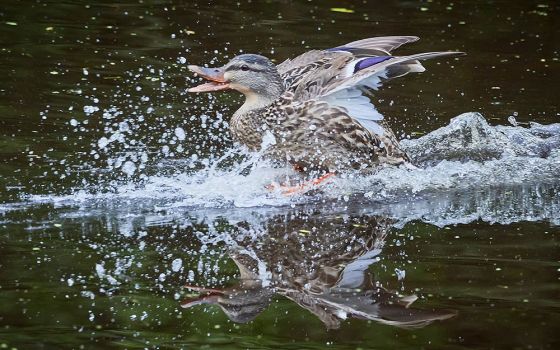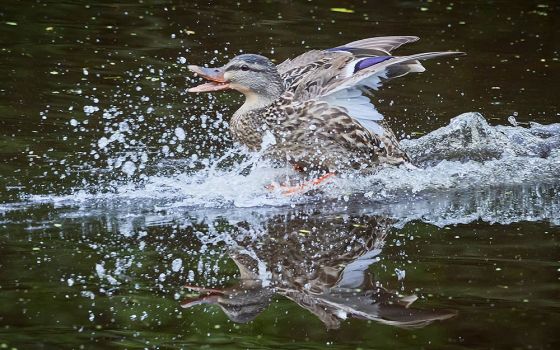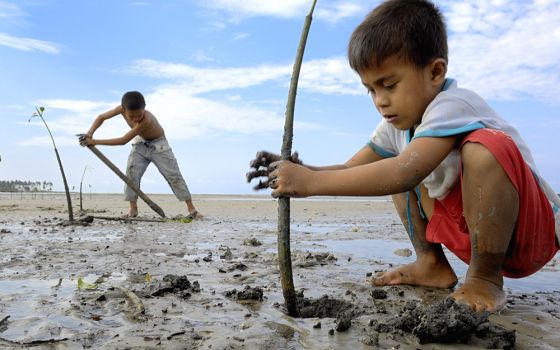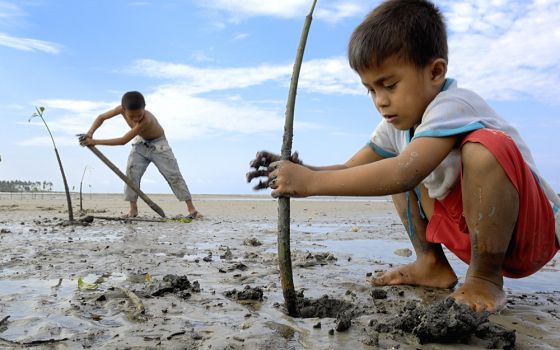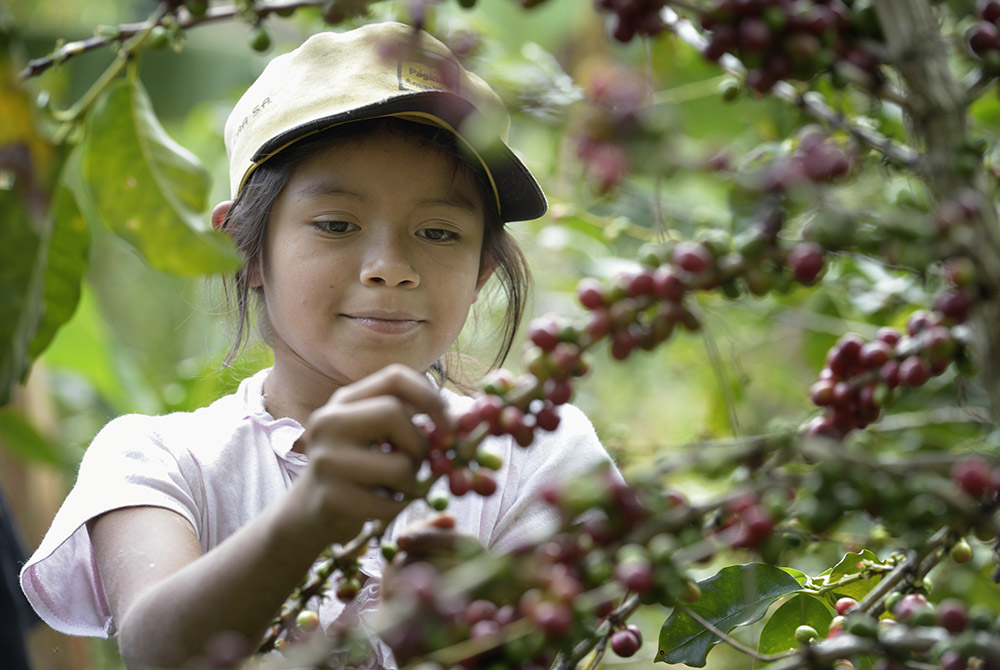
Carmen Elvira Taywho, 9, picks coffee beans in Guatemala. (Paul Jeffrey)
Editor's note: This Season of Creation, join award-winning photographer Paul Jeffrey for "Lens on Creation" as he examines the world through the lens of his camera and his faith. Sign up here to receive Jeffrey's reflections in your inbox every Monday, Wednesday and Friday from Aug. 31 to Oct. 4.
I met Carmen Elvira Taywho on a farm in San Martin Jilotepeque, Guatemala. The 9-year-old Kaqchikel Maya girl was picking coffee that would be exported and end up in a mug like the one I desperately caress every morning.
Coffee has long been a major export crop in Central America, but the climate crisis is steadily ruining small coffee farmers, leading many to emigrate northward in order to survive.
An increase in temperatures in recent decades has allowed a fungus known as coffee rust to spread through plantations in the region. Mottled yellow and brown leaves signal the arrival of the disease, which was formerly kept at bay by lower nighttime temperatures. Large farmers can often dig up the infected plants and replace them with disease-resistant hybrids, but small farmers seldom have the necessary capital. So they watch their farms fail.
Along with changing patterns of precipitation, also a product of climate change, agriculture has become a risky business in Central America. Political leaders in the region seem more interested in enriching themselves, often by supporting drug traffickers, than in supporting sustainable agriculture.
As stewards of creation, we're concerned about environmental troubles everywhere. As consumers, we're linked in very direct ways to Carmen and others who live from producing coffee around the world. How can we use that leverage to heal the planet, so that she and others like her may truly live?
For reflection and action
How much attention do we pay to the food chain that stretches from farms to our table? What items on our shopping list can be sourced from ethical or organic suppliers, lessening our impact on the planet and assuring that the workers who produce our food get a fair share of the profit? Does the coffee and tea we drink after Mass carry a fair trade label or come from justice-promoting organizations like Equal Exchange? Are we supporting local farmers who sell at local markets or through Community Supported Agriculture programs?
[Paul Jeffrey is a founder of Life on Earth Pictures and lives in Oregon. You can follow him on Instagram.]
Advertisement



